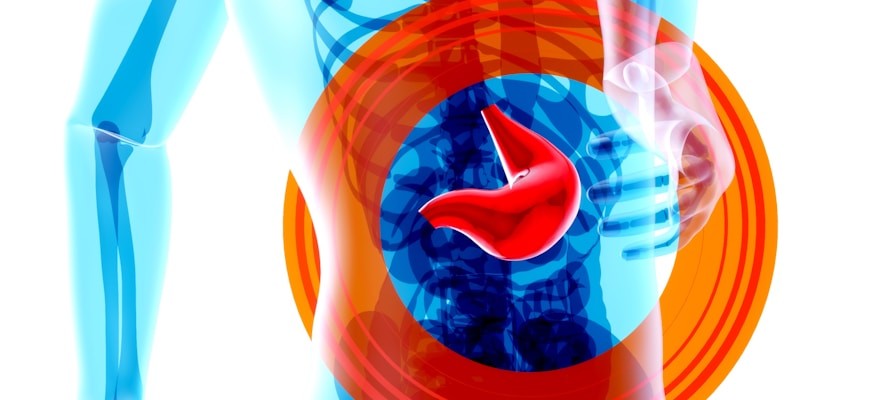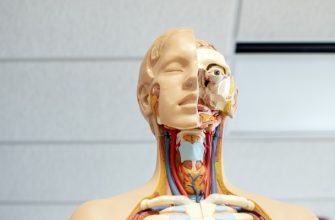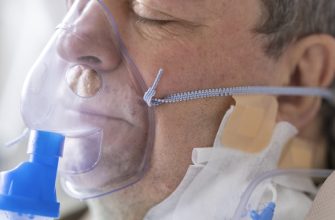The Essential Role of Oxygen in Our Bodily Functions
Oxygen plays a critical role in maintaining optimal bodily functions. This vital element is essential for the process of cellular respiration, where cells convert nutrients into energy. Without adequate oxygen supply, the efficiency of energy production diminishes, leading to fatigue and decreased performance.
Moreover, oxygen is crucial for the proper functioning of the brain. The brain, despite its small size, consumes a significant amount of oxygen, accounting for about 20% of the body’s total intake. Insufficient oxygen levels can impair cognitive functions, resulting in issues such as memory loss, confusion, and difficulty concentrating.
- Oxygen supports the immune system, enabling the body to fight off infections and diseases effectively.
- It aids in detoxification by helping to eliminate harmful substances from the body.
- Oxygen promotes healthy skin and tissue regeneration, contributing to overall vitality.
- It enhances athletic performance by improving endurance and reducing recovery time after physical exertion.
Ensuring an adequate supply of oxygen is essential for sustaining life and promoting health. Engaging in regular physical activity, practicing deep breathing exercises, and spending time in nature can enhance oxygen intake. These practices not only increase oxygen availability but also improve overall health and well-being.
In summary, oxygen is vital for energy production, cognitive function, immune support, detoxification, and physical performance. Recognizing its importance can lead to healthier lifestyle choices that optimize oxygen delivery throughout the body, ultimately enhancing overall health.
How Oxygen Intake Affects Your Overall Health
Oxygen plays a key role in maintaining overall human health. Effective oxygen supply is essential for the proper functioning of all body systems. A lack of oxygen can lead to numerous problems, including decreased energy levels, impaired cognitive function, and even serious illnesses.
- Energy Metabolism: Oxygen is required for cellular respiration, which produces energy. This process determines the level of activity and performance.
- Cognitive Functions: Proper oxygen supply helps improve concentration, memory, and overall mental activity. Oxygen deficiency may cause dizziness and difficulties with focusing.
- Immune System: Oxygen supports the health of the immune system. It aids in the production of antibodies and improves blood circulation, helping the body fight infections.
- Skin Health: Adequate oxygen intake improves skin condition by supporting hydration and elasticity. Lack of oxygen can lead to dullness and premature skin aging.
To achieve optimal oxygen levels in the body, it is important to maintain an active lifestyle, spend time outdoors, and monitor lung health. Improving breathing quality and ensuring the body receives sufficient oxygen can significantly enhance quality of life and overall well-being.
In conclusion, maintaining effective oxygen supply is vital for human health. To ensure optimal oxygen levels, one should pay attention to physical activity, proper breathing, and a healthy lifestyle. Such measures can help prevent many diseases and improve the body’s overall condition.
Understanding the Connection Between Oxygen and Vitality
Oxygen plays a key role in maintaining the health and vitality of the body. Without sufficient oxygen, cells cannot function optimally, which can lead to various diseases and a decrease in quality of life. Effective oxygen supply is essential for all physiological processes, including metabolism, energy production, and cell regeneration.
The body uses oxygen to generate energy through a process known as cellular respiration. This energy is required for numerous functions, from muscle movement to brain activity. Oxygen deficiency can cause fatigue, weakness, and even serious conditions such as hypoxia.
Oxygen helps improve physical endurance.
It is necessary for the normal functioning of the cardiovascular system.
Oxygen affects mental performance and concentration.
It supports the immune system, aiding in fighting infections.
Effective oxygen supply promotes faster recovery after intense physical activity.
To ensure optimal oxygen levels in the body, several factors must be considered. Proper breathing, physical activity, and a healthy lifestyle all contribute to improved oxygen exchange. Additionally, clean air and maintaining adequate humidity indoors also play an important role in ensuring effective oxygen supply.
In summary, oxygen is a fundamental element necessary for life and health. Effective oxygen supply impacts both physical and mental well-being, increasing overall vitality and quality of life.
The Impact of Oxygen Levels on Physical Performance
Oxygen levels play a crucial role in physical performance and overall health. The body’s ability to utilize oxygen efficiently can significantly impact endurance, strength, and recovery during physical activities. When oxygen supply is optimal, muscles receive the necessary fuel to perform at their peak. Conversely, insufficient oxygen can lead to fatigue, decreased stamina, and impaired performance.
During exercise, the demand for oxygen increases as muscles work harder. This heightened need requires the cardiovascular system to deliver oxygen-rich blood efficiently. Athletes often train at varying altitudes to adapt their bodies to different oxygen levels, enhancing their physical capabilities. Moreover, adequate oxygen supply aids in the recovery process by promoting the removal of metabolic waste products, which can otherwise lead to muscle soreness and prolonged fatigue.
- Improved Endurance: Higher oxygen levels allow for prolonged physical activities without rapid fatigue.
- Enhanced Strength: Sufficient oxygen helps optimize muscle function and power output during intense workouts.
- Faster Recovery: Effective oxygen delivery facilitates quicker healing and reduces downtime after strenuous activities.
- Increased Mental Clarity: Oxygen also supports brain function, enhancing focus and decision-making during physical exertion.
In summary, maintaining optimal oxygen levels is vital for maximizing physical performance. Whether engaged in sports, exercise, or daily activities, understanding the importance of oxygen can lead to improved health outcomes and enhanced physical capabilities. Proper breathing techniques and environmental considerations should be prioritized to ensure the body receives adequate oxygen for peak performance.
Breathing Better: Techniques for Enhanced Oxygen Delivery
Efficient oxygen delivery is crucial for optimal health and well-being. Various techniques can significantly enhance the body’s ability to absorb and utilize oxygen effectively. Understanding these methods can lead to improved respiratory function and overall vitality.
- Diaphragmatic Breathing: This technique involves engaging the diaphragm fully, allowing the lungs to expand more completely. By focusing on deep abdominal breaths, the body can increase oxygen intake while reducing stress.
- Nasal Breathing: Breathing through the nose filters and warms the air, promoting better oxygen absorption. This method also encourages slower, more controlled breathing, which can enhance oxygenation in the bloodstream.
- Box Breathing: A structured breathing technique that involves inhaling for a count of four, holding the breath for four, exhaling for four, and holding again for four. This method helps to regulate oxygen levels and increase lung capacity.
- Alternate Nostril Breathing: A practice from yoga that balances the body’s energy and enhances lung function. By alternating nostrils, this technique promotes equal oxygen flow to both hemispheres of the brain, optimizing cognitive function.
- Physical Activity: Engaging in regular exercise boosts circulation and enhances the body’s efficiency in using oxygen. Activities like aerobic exercises, yoga, and even brisk walking can significantly improve respiratory health.
Incorporating these techniques into daily routines can help individuals achieve better oxygen delivery, leading to enhanced energy levels and improved overall health. The importance of effective oxygenation cannot be overstated, as it plays a vital role in every aspect of physical and mental well-being.
The Consequences of Oxygen Deficiency on Well-being
Oxygen deficiency can lead to a myriad of health issues that significantly impact overall well-being. The human body relies on a sufficient supply of oxygen to function properly, and a lack of it can result in both physical and mental health problems. Understanding the consequences of insufficient oxygen levels is crucial for maintaining optimal health.
- Fatigue: One of the most immediate effects of oxygen deficiency is chronic fatigue. When the body does not receive adequate oxygen, energy levels plummet, leading to persistent tiredness.
- Impaired Cognitive Function: Low oxygen levels can impair cognitive abilities, causing difficulties in concentration, memory loss, and reduced mental clarity.
- Respiratory Issues: Oxygen deprivation can exacerbate existing respiratory conditions, making breathing more difficult and increasing the risk of complications.
- Increased Heart Rate: The heart compensates for low oxygen levels by beating faster, which can lead to cardiovascular strain and related health concerns.
- Weak Immune Response: Insufficient oxygen can weaken the immune system, making the body more susceptible to infections and diseases.
Adequate oxygen supply is essential for cellular functions and metabolic processes. When the body is deprived of this vital element, it struggles to perform its basic functions, leading to a decline in overall health. Addressing oxygen deficiency not only enhances physical performance but also supports mental clarity and emotional stability.
To mitigate the effects of oxygen deficiency, it is vital to ensure proper ventilation in living spaces, engage in regular physical activity, and consider oxygen therapy if necessary. By prioritizing oxygen intake, individuals can enhance their health and well-being significantly.








